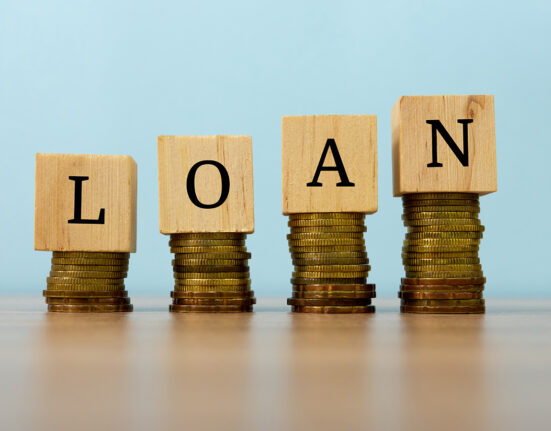The proposed housing levy under the Finance Bill 2023 in Kenya has generated significant attention and discussion due to its potential impact on job creation, living conditions, and human dignity. Championed by the President of Kenya, His Excellency Dr. William Samoei Ruto, the housing levy aims to address the pressing need for affordable housing while simultaneously stimulating economic growth. This article examines the potential game-changing aspects of the bill, evaluating its ability to create employment opportunities, improve living conditions, promote inclusive growth and entrepreneurship, and contribute to sustainable development. By delving into these subtopics, we can gain a comprehensive understanding of the transformative effects that the housing levy may have on the lives of Kenyan citizens and the nation as a whole.
Job Creation
The housing levy proposed in the Finance Bill 2023 has the potential to be a game changer in terms of job creation. By stimulating the construction industry and increasing the demand for housing units, the levy can generate employment opportunities for a wide range of workers. This includes not only construction workers but also those involved in manufacturing construction materials, transportation, logistics, and other related sectors. The ripple effect of job creation throughout the value chain can contribute to a reduction in unemployment rates and provide economic empowerment for individuals.
Inclusive Growth and Entrepreneurship
The collaboration between the Affordable Housing Programme and the Jua Kali sector offers a unique opportunity for inclusive growth and entrepreneurship. By involving small-scale manufacturers and artisans in the production of construction materials, the bill can create employment opportunities within the informal economy. This inclusion can lead to economic stability and growth for marginalized individuals who may have previously faced barriers to formal employment. Supporting entrepreneurship within the informal sector can empower individuals to build their businesses, contributing to economic development at the grassroots level.
Improved Living Conditions
The focus of the housing levy on transitioning individuals from rent-paying to homeownership can significantly improve living conditions for Kenyan citizens. Access to affordable housing is a basic human right and contributes to a dignified life. By providing affordable and decent housing options, the bill aims to uplift communities, improve sanitation, and enhance the overall well-being of individuals and families. The improvement in living conditions goes beyond shelter and has a profound impact on physical health, mental well-being, and social cohesion.
Sustainable Development and Environmental Stewardship
The Affordable Housing Programme aligns with the government’s commitment to sustainable development and environmental stewardship. As the construction of affordable housing units requires various materials, there is an opportunity to promote the use of eco-friendly and energy-efficient building practices. This can include the adoption of green building technologies, the use of sustainable construction materials, and the implementation of energy-saving measures. By incorporating environmentally conscious practices, the bill contributes to sustainable development goals and supports a greener and more resilient future.
My Opinion
As an engaged citizen, I wholeheartedly welcome the proposed housing levy under the Finance Bill 2023 in Kenya. This ambitious initiative holds immense promise for our nation, with the potential to bring about transformative changes in job creation, living conditions, and overall human dignity. Through strategic questioning, we can explore the reasons why this bill deserves our optimism and support, as well as the scientific strategies that underpin its transformative power.
How can we ignore the significance of job creation in a country striving for economic growth and social development? The housing levy’s focus on stimulating the construction industry and increasing demand for housing units holds the potential to generate a plethora of employment opportunities. By creating jobs for construction workers, manufacturers, logistics personnel, and more, this bill will breathe new life into our economy. As a result, unemployment rates may decrease, providing hope and prosperity for countless individuals and their families.
Consider the empowering effect of inclusive growth and entrepreneurship. By partnering with the Jua Kali sector, the housing levy promotes collaboration between the formal and informal economies. This inclusion not only fosters economic stability but also unleashes the entrepreneurial spirit within marginalized communities. Small-scale manufacturers and artisans can seize opportunities to contribute to the production of construction materials, thereby fueling economic growth from the grassroots level. Through this strategy, the bill offers a path to empowerment, enabling individuals to shape their own destinies and create a ripple effect of positive change.
What about the transformation of living conditions and the restoration of human dignity? The proposed housing levy addresses the urgent need for affordable housing, elevating individuals and communities from substandard and unsanitary environments. By providing access to decent and affordable homes, we can uplift the lives of countless Kenyans. Improved living conditions will have far-reaching benefits, enhancing physical and mental well-being, fostering social cohesion, and promoting a sense of pride and ownership. This is not merely a matter of shelter; it is a fundamental right that every Kenyan deserves.
Moreover, the bill aligns with our commitment to sustainable development and environmental stewardship. Through the adoption of eco-friendly building practices, the housing levy can contribute to a greener and more resilient future. By incorporating green technologies, sustainable construction materials, and energy-saving measures, we can build homes that are not only affordable but also environmentally responsible. This scientific approach ensures that our transformation is rooted in long-term sustainability, benefiting future generations.
In conclusion, the proposed housing levy carries the potential to transform Kenya into a thriving and dignified nation. By generating employment opportunities, improving living conditions, fostering inclusive growth, and embracing sustainable development, this bill represents a beacon of hope for a brighter future. Let us unite in our support for this transformative initiative, confident that our collective efforts can pave the way for a prosperous and sustainable Kenya.














Leave feedback about this